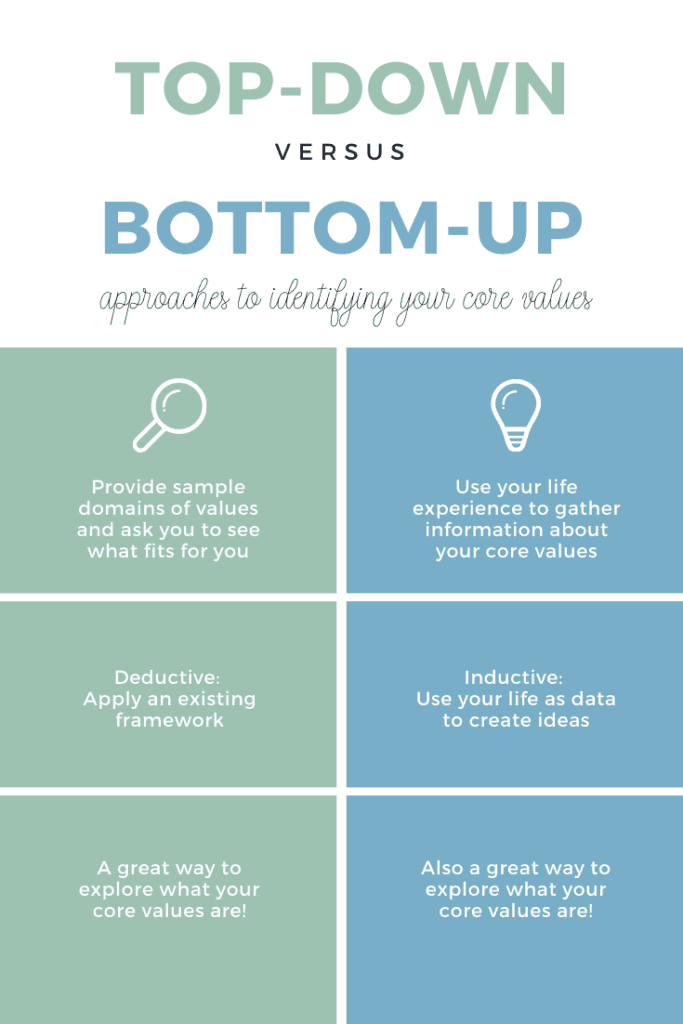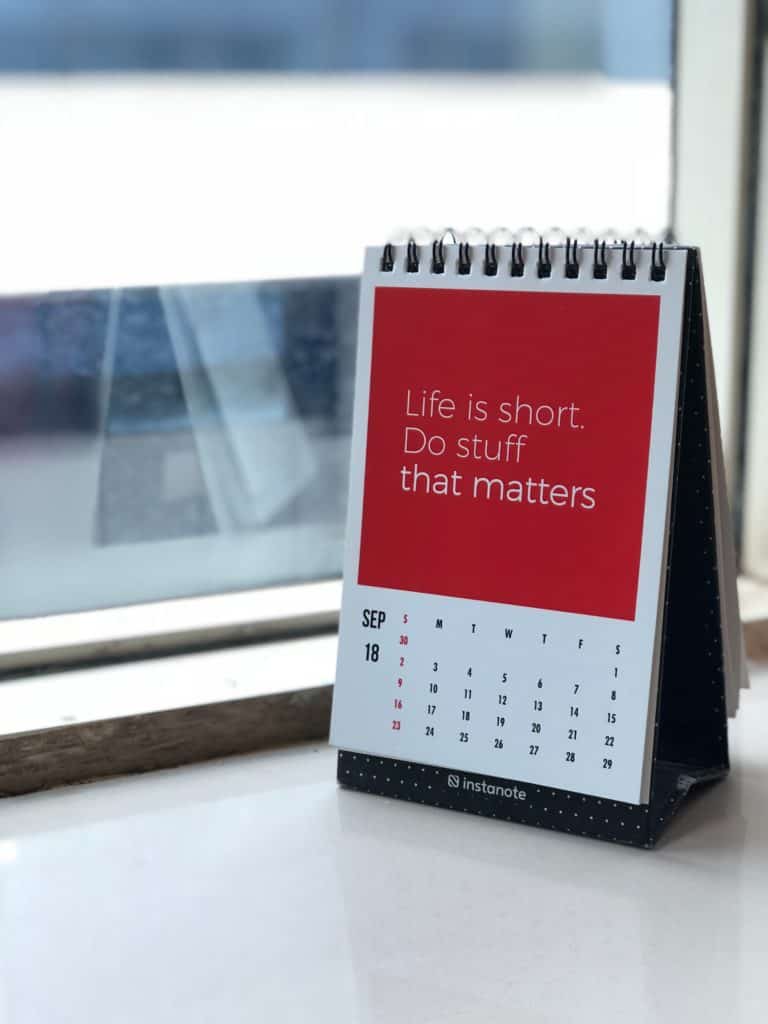In a previous post, we outlined why understanding your core values is crucial for developing great self-care plans.
The TL; DR* summary of that post is: Knowing what really drives us helps us live our lives in ways that make us feel rewarded, connected, and alive. This includes our self-care choices. When we match our self-care to our core values, we get more “bang for our self-care buck!”
What does “core values” even mean?
“Core values” is a vague term, and you might be wondering what it means. We consider values to be those ideas, ways of being in the world, and feelings we hold about what is most important in life. Because you might hold many different values, we use the term “core values” to mean those ones that are really, really, important to you. These are your “ride or die values!” Without them, your life is just going to seem…. well, kind of empty.
There are many, many values that humans might hold. Each person’s combination of core values is unique.
It is also important to know that our true core values cannot be dictated to us by others. Core values come from inside of us, not from the outside. People can try to tell you what your values should be, but they won’t truly stick unless YOU hold them. You will be miserable pursuing someone else’s values.
Shouldn’t I know what my values are? I mean, who doesn’t know that already!?
Some of us know our values really easily. But it’s also common – especially for those of us who are busy juggling a lot of demands and responsibilities – to not be really sure what our values are. As mentioned, we might be trying to live the values that our family, friends, or society tells us we “should” consider important. Maybe you’ve been focused on the needs of others, and not taken the time to examine what is crucially important to YOU. Sometimes seasons of our lives shift and those values we consider to be core also shift as well, such as when we experience a major life change like the end of an important relationship, a new job opportunity, or the addition of a new family member. Sometimes we just grow and change as people – this is human nature.
The answer to “Who doesn’t know their values already?” is: “Lots of people!”
How do I begin to identify my core values?
Figuring out your core values is a journey, and there are 2 main ways to begin that journey: from the top and from the bottom
When it comes to values work, we think more is better. A combination of both approaches is a great way to begin to identify your core values.
- Top-Down Approaches – present you with possible options of core values and invite you to consider if they fit with what matters to you
- Bottom-Up Approaches – encourage you to gather data from your own life and infer your values

Top-down approaches
Top-down approaches to values identification present you with a series of possible values and ask you to consider how important each one is to you. They are deductive approaches that apply an already existing framework to your self-care. These domains usually include family, romantic relationships, work, leisure, health, community, spirituality, and many more values that you might hold. You can check out the Teach Me Self Care top-down values identification worksheet here! Just make yourself a copy and you can start your top-down journey to identifying your core values.
Bottom-up approaches
Bottom-up approaches to values identification use your own life experience and reactions to your experiences to create a picture of what your core values might be. They are inductive approaches that create a picture of your best self-care practices based on your life as data. By paying attention to our thoughts, emotions, and how our body feels we can receive information about what is important to us. Here are some of our favorite questions for beginning to identify your core values from the bottom-up:
- What activities make you feel the most relaxed? Which ones bring you a sense of flow? (e.g., getting so engaged in your activity, you lose track of time)
- What do you always make time for, no matter how busy you are?
- What types of play did you most enjoy as a child?
- Do you feel energized and refreshed by time spent with others or time alone? Or a mix of both?
- What type of request from someone else would you get out of bed to do it at 3 A.M.?
Remember, self-care isn’t only bubble baths!
It is important to remember that any activity can be self-care, and we encourage you to think outside the box of what you generally consider self-care to be, as you explore what self-care looks like for you. For example, for some people getting a little bit of extra time for work is an act of self-care. For some people going for a run is a blissful moment of zen. For others, it feels like torture from start to finish. Self-care can be as simple as remembering to take your medication, volunteering for your kid’s PTA, taking a class, or any other act that re-aligns you with your values. Self-care, by our definition, is anything you do to replenish your professional and/or personal selves. That means your options are truly limitless!

Identifying core values is a self-care investment with a good future return
We know what you’re thinking: “This all sounds great but…. who has time for this?” We get it! You’re busy and your days are likely filled from wake-up to bedtime, and you’ve got a list of things to do as long as your arm – some of which you never manage to get to.
We’re not going to lie – it’s much, much easier to decide to throw any old self-care activity on your plate than it is to put in the work identifying your core values. What takes more time: Writing “Go for a run” on your to-do list for the week, or filling out a worksheet that requires you to reflect on what is truly important to you? Having a glass of wine right now, or doing a deep dive into your life to evaluate whether it is bringing you any self-care joy? Obviously it’s faster to aim for a quick self-care activity than it is to do values work. Values work is hard work.

The problem with this activity-based (not values-based) approach to self-care is that it just doesn’t work as well. It’s like running an experiment without any idea of what you are studying. Or heading into surgery without putting scrubs on first. That is, self-care without values is missing an important piece that makes it work. As a result, it will be harder in the long run. Sure, it might be easier to go for a run without identifying why you want to run… but when Winter hits and your schedule gets jam-packed, it will be a lot easier for you to make time for that run if it is truly important to you. Doing values work now is like compounding interest on an emotional investment: It will provide you with more return over the long term!
Identifying core values is a journey
Identifying your core values is a journey of self-exploration. It involves trying new things and noticing your reactions to them, being open to liking or disliking all of your choices, and tweaking your self-care experiments over time. It especially involves being willing to fight the “shoulds” of self-care. What is most important is what you need to live your best life.
In self-care solidarity,

Want more?
Sign up for our mailing list for tips, updates, and to be the first to know when our courses launch.
